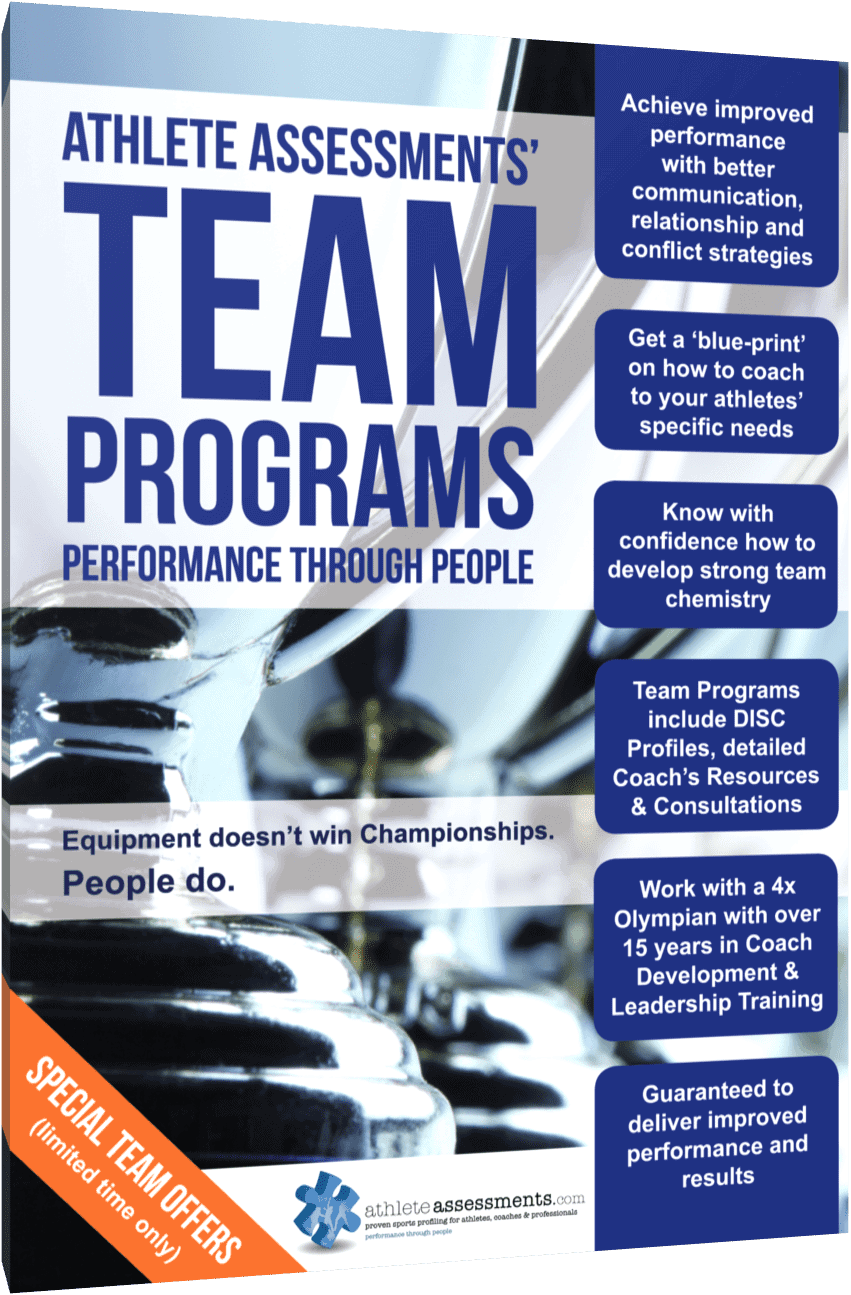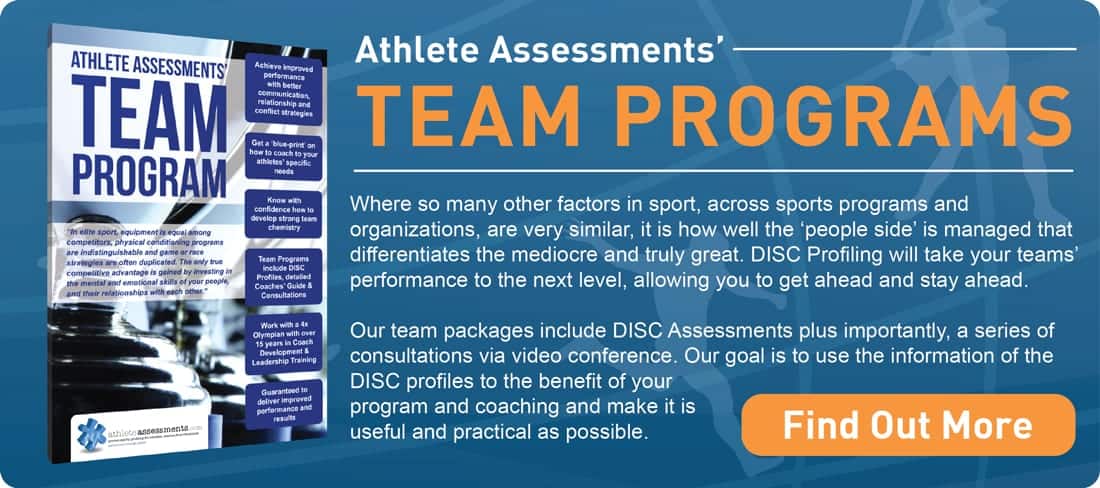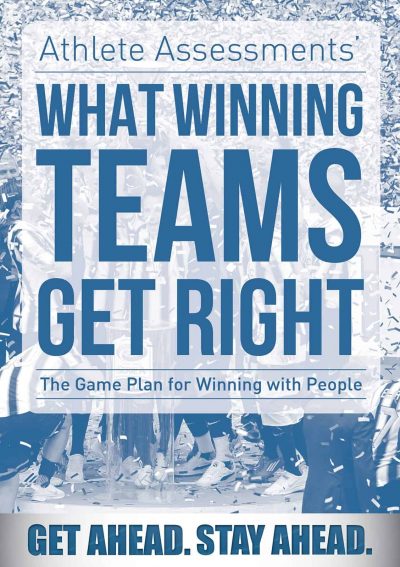Team culture – a definition, an explanation of what it looks like in a sporting context and a guide as to how Coaches can identify what their team culture is.
By Mim Haigh, Sports Writer – Athlete Assessments
Every team has a culture. Some team cultures deliver sustained success, some merely create success in the short term, and others are doomed from the start. What we know for sure is culture is a critical factor in the success of any team.
Team culture is best understood as the way people behave. Bo Hanson, Senior Consultant for Athlete Assessments explains that team culture in sport is a result of the standards each team set and the behavior they accept. Those standards and the behavior that results from it, form the team’s identity.
Unpacking the subject in greater detail, Hanson explains that each team has an internal identity, which he says, “is what the team thinks about themselves and external identity, which is what other teams, spectators, other coaches, anyone else in fact, thinks about the team.”
He says, “for example, when you go out on the weekend and play against an opposition team they’re going to go into that game thinking certain things about your team, based on what they know, and they’ll come away from that game saying certain things about the team too.”
Pinpointing exactly what culture is, Hanson says, “typically there’s two types of culture. There’s the culture that everyone talks about and then there’s the culture that actually exists, and sometimes, they’re distinctly different things. When coaches are trying to measure culture, we always encourage them take note of the behaviors that they notice on a daily basis.”
Watch the below video on this topic:
“When you’re heavily invested it’s often difficult to distinguish between the two but when I visit a program, culture is first thing that hits me. When I look at the locker room I notice if there’s stuff lying around or it’s clean and tidy? When I talk to the people at the facility or organization, I notice whether they’re friendly and if they’re asking about the other people they are interacting with. When I look at the playing group, I look at whether they’re communicating with each other or if they’re just getting on with the job. I notice whether they turned up on time. We look at all at the little behaviors, and from our experience the little things are really the big things. When you hear a coach talk about the fact that they’ve got a high-performance culture and then you see that the locker rooms a mess or it’s not as clean and tidy as it could be, or you see what I would consider to be the opposite signs of a high-performance culture I know that there’s a mismatch”.
You can read on about strategies that drive the development of team culture with our follow up article on this topic. Read about establishing a team’s goals, roles, values and behaviors with our article ‘Strategies to Develop Team Culture’.
Where to from Here…
If you’ve enjoyed this article, you will likely value watching this video series.
Team Culture and Identity in Sport Video Series
Getting the culture right in your team and organization is crucial for success on any level. So how do you ensure that your culture gives your athletes the opportunity to achieve their fullest potential? In this 7-part video presentation, Bo Hanson discusses the importance of team culture, and how effectively utilizing the GRIP Model during your season can go a long way to ensuring your team’s culture starts on, and stays on, the right track. Watch the video series now!
At Athlete Assessments, we’re experts in the people side of sport. We know sport and live high-performance every day. Our reputation and proven success at the elite level speaks for itself. The results that our National, Olympic, Professional and Collegiate team clients achieve directly reflects their focus on getting the people side right.
Athlete Assessments’ Team Programs have been specifically designed to maximize the people side of your team.
 Achieve improved performance with better communication, relationship and conflict strategies
Achieve improved performance with better communication, relationship and conflict strategies- Get a ‘blue-print’ on how to coach to your athletes’ specific needs
- Know with confidence how to develop strong team chemistry
- Team Programs include DISC Profiles, detailed Coach’s Resources & Consultations
- Work with a 4x Olympian with over 20 years in Coach Development & Leadership Training
- Guaranteed to deliver improved performance and results
At Athlete Assessments, we’re here to provide you with excellence in service and here to help you be your best. If there is anything we can assist you with, please Contact us.






